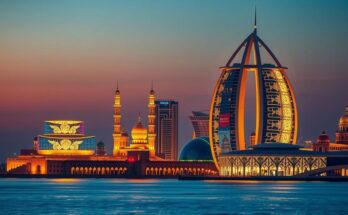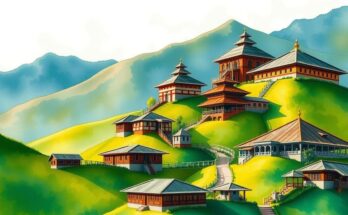Nestled in the Swat district of Pakistan, Torwal has a modest population of 140,000 Torwali speakers. This region has experienced profound transformations in physical, cultural, demographic, and environmental aspects shaped by modernization, state policies, and outside cultural influences. Historically self-sufficient, communities thrived in harmony with nature, but changes since the 1920s, including the integration of Swat into Pakistan in 1969, and rising religious influences have disrupted traditional lifestyles.
In the past, subsistence farming and pastoralism were the mainstay of Torwal’s economy, underscored by a barter system. Clothing fashioned from local wool and food shortages often led to disputes over limited resources. Communities relied on rich ecological knowledge passed down through generations, with architecture blending seamlessly into the mountainous landscape—an embodiment of survival in harsh conditions.
In the 16th century, the inhabitants of Torwal held unique spiritual beliefs about nature and pastoral life, governed by land and livestock ownership, with leadership resting in the hands of those possessing land and warriors. However, modernization began to crumble these traditions. Newly introduced ideologies and social systems started merging indigenous customs with foreign norms, complicating community dynamics.
The construction of roads initiated during the Swat State era sparked urbanization, connecting isolated villages and ushering economic opportunities. However, it shifted demographics, with current towns like Bahrain outgrowing historical centers. Since the 1970s, tourism boomed in areas like Bahrain and Madyan but poorly managed tourism practices led to both environmental degradation and real estate speculation that adversely affected local livelihoods.
Significant projects, including the Daral and Madyan Hydropower Projects, have disrupted local environmental balances and traditional lifestyles, raising deep concerns among the Torwali people. Religion has historically organized social structures, but post-1969 integration brought state-led religion standardization and the rise of sectarian tensions, fueled further by cold war influences, creating a polarized socio-cultural climate.
The indigenous languages of Torwali and Gawri witnessed decline, overshadowed by dominant languages like Pashto, Urdu, and Arabic in educational and religious contexts. The generational gap in language fluency widened as modern educational systems favored Urdu and English, jeopardizing the survival of traditional oral practices and cultural narratives that once flourished among the Torwali.
Throughout history, the Torwali people’s identity faced marginalization from dominant ethnic groups, pushing many to assimilate. Disregarded by government policies, their distinct identity was overlooked, leading to economic migrations to urban areas, depopulation in the countryside, and a shifting demographic as outsiders acquired local lands, further eroding community control over resources.
Economic changes reshaped family structures, pulling younger generations away from ancestral trades. Education remained a barrier, with limited access to facilities, leaving many unsure of their future. Climate change exacerbates local vulnerabilities, as changing snowfall patterns affect water availability, leading to flooding and infrastructure damage while deforestation devastates local ecosystems and wildlife habitats.
Natural disasters in 2010 and 2022 exposed the region’s susceptibility to climate crises, with unregulated development practices intensifying the negative effects. Despite their cultural significance within Swat, the Torwali community remains politically sidelined, often lacking representation in development discussions that directly impact them.
Recognizing the Torwali people as indigenous could secure their rights under national and international frameworks. Prioritizing collective rights, effective tourism management, renewable energy options, and reforestation efforts could improve the situation. Additionally, reviving local languages and storytelling traditions can help preserve their rich cultural heritage, enabling resilience against climate change and societal upheaval.
The Torwali region of Swat, home to 140,000 speakers, has transformed markedly due to modernization and external influences. Previously self-sufficient, the community thrived on subsistence farming and close connections to nature. However, integration into Pakistan and external developments have disrupted traditional lifestyles and eroded cultural identity. Increasing challenges from economic changes, climate impact, and political marginalization threaten the Torwali’s unique heritage. Addressing these issues requires urgent legal recognition and sustainable practices.
The Torwali people of Swat have faced significant changes due to historical, socio-political, and environmental influences. While modernization has introduced new opportunities, it has simultaneously eroded cultural identity and traditional ways of life. To protect their rights, preserve their culture, and address environmental challenges, urgent policy changes and grassroots initiatives are essential. A holistic approach that intertwines legal recognition, sustainable development, and cultural revival is critical to securing a viable future for the Torwali community.
Original Source: www.thenews.com.pk



